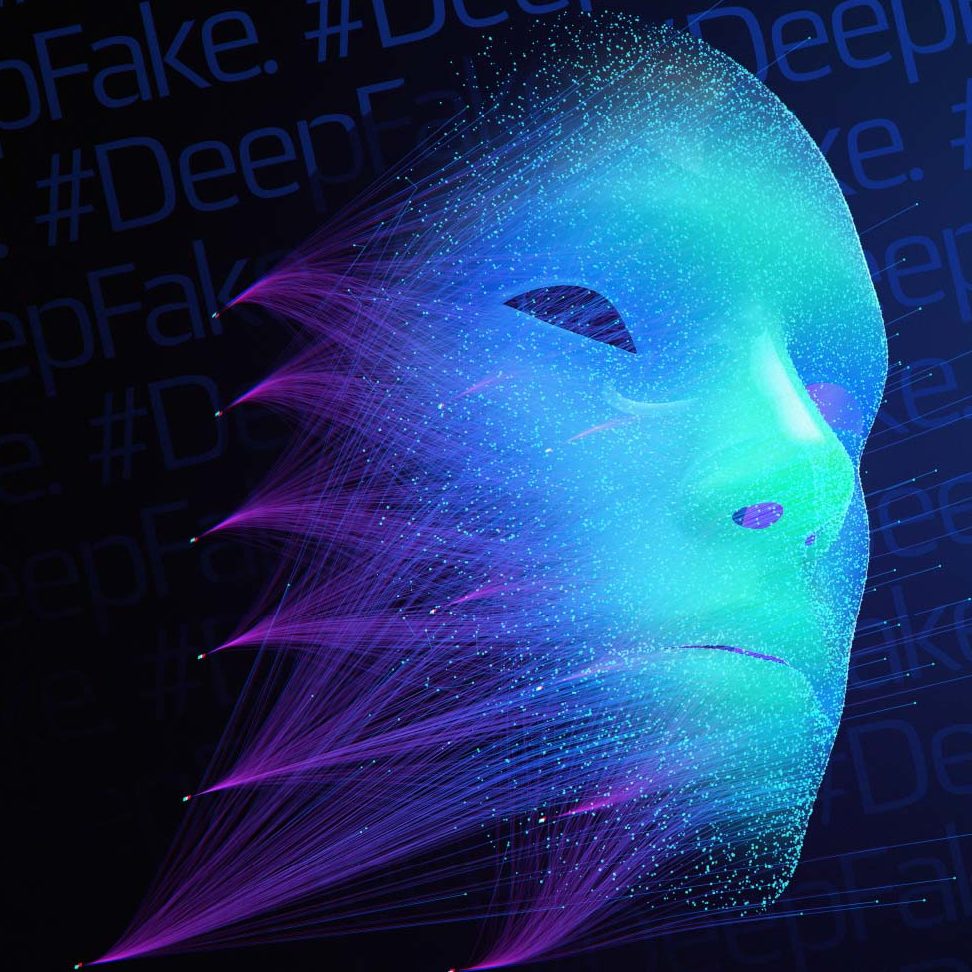- Opinion
- 22 Feb 24

When Taylor Swift became the latest victim of a deepfake porn attack, Shakespeare’s Macbeth came to mind…
In Act 4 of Macbeth, the three witches are brewing up their “hell-broth” of “double, double toil and trouble”, when the second witch senses Macbeth’s approach. By the pricking of my thumbs, Something wicked this way comes.
“How now, you secret, black, and midnight hags!” he greets them, “What is’t you do?”
“A deed without a name,” they reply.
Well! If you were directing the play in 2024, you might cast Macbeth as Trump and the witches as deepfake black-ops contractors, internet trolls, online influencers and asymmetric war-wagers. They’d be engaged in online abuse and internet trolling. Spawning and spreading conspiracy theories and promoting authoritarianism, racism, misogyny, greed and imperialism.
Look at the parallels! The witches summon up apparitions (deepfakes!) to tell Macbeth exactly what he wants to hear: that he’s invulnerable. But they’re out to foment more chaos and crime, to have Macbeth behave even more badly before he’s taken out. Taylor Swift is far from the first victim of deepfake porn. It’s already happened to tens of thousands, perhaps millions of others.
Advertisement
Most of the victims are ordinary females, like you, or those you know and love. It’s a massive issue and it’s everywhere, including Ireland. Research in 2021 by NUI Galway found that more than 53% of boys in Ireland were under the age of 13 when they first watched porn, and that 23% of girls first encountered porn between the ages of 10 and 13.
And in 2019, DeepTrace Labs found that 96% of deepfake video content was non-consenting porn. Five years later, things are far worse. Advances in AI and virtual reality mean that almost any malicious person can create fake online material purporting to show a real person engaged in explicit sexual activities. Such material is increasingly easy to produce and the end-products are very realistic.
So, the possibility of abuse increases exponentially, facilitated to an exceptional degree by the utter lack of controls exercised by the tech conglomerates that own and herd the online world. Those deepfake porn images of Taylor Swift spread like Covid. The social media platform formerly known as Twitter was so slow to react, one image was viewed 47 million times before it was taken down.

Taylor Swift. Photo: John Shearer
It was Swift’s fans (and certainly not X) who mobilised and mass-reported the images and flooded the platform. There was widespread shock and anger. The White House called it “alarming”. The images were eventually removed, but far too late. X is an open, popular social media platform. It’s not a dedicated pornography platform. Yet, it’s where the content spread.
They then circulated far and wide on other mainstream social media platforms. Once they’re out, they’re out and no amount of apologising or soft-soaping can recapture them. But porn is just one ingredient in the online hell-broth now brewing up. Deepfakes are also polluting politics. But, unlike porn, this is largely, perhaps exclusively, in democratic countries.
Advertisement
There was one of Joe Biden just a few weeks ago. There will be more. State actors are involved, many with highly sophisticated capacity. But malign, non-state forces are also at work, whoring themselves out as contractors to the highest bidders. Their sinister influence criss-crosses borders and political processes.
For example, last February the Disinfo black ops project exposed “Team Jorge” a team of Israeli contractors, who claim to have covertly influenced more than 30 elections around the world through hacking, sabotage and automated disinformation on social media. Disinfo is a coalition of journalists from 30 news media including Haaretz, Le Monde, Der Speigel and The Guardian.
Such contractors have built a global disinformation campaign aimed at disrupting, confusing and undermining democratic processes and structures. The clients and beneficiaries are many: hostile states and anti-democratic regimes, kleptocrats, the fossil fuel and mining industries, and even international narcotics conglomerates. The digital world, including AI, has both levelled the playing field and opened the turnstiles to a diverse gaggle of participants.
And now that AI has escaped into the wild, the probability is that it’ll take us all over the edge. Deepfake content, whether porn or political, is a great and growing challenge and it needs to be eradicated. AI algorithms can mass-produce text, imagery and video designed to deceive or persuade. Furthermore, generative AI tools are widely available, including many open source language models that anyone can obtain and modify.
So it’s easy and cheap for anyone to make deepfake porn or political videos. It’s hard to be hopeful. The internet and social media are descending into a cesspit of fakery and distortion, a hell-broth in which the truth is buried in bullshit and bollocks, almost all of it from the right. Already, in 2023, we’ve seen politically significant shifts, for example in the Netherlands and Argentina, and misinformation has undoubtedly played a part.

But next year will bring many elections all around the world. Each will matter, but the UK election is of great importance to us, and it will certainly be dirty, though probably not as appalling as the coming US Presidential election. At home, there will be local and European elections and, quite possibly, a general election in the autumn.
Advertisement
For that reason alone, and there are many others, we should take seriously the warning from US intelligence agencies on likely interference in our looming European, local and general elections. Anti-democratic groups can wield disproportionate influence through social media and precisely targeted actions. Don’t underestimate their potential influence on our elections.
There will be many sources, including the American far right groups, “libertarian” religious fanatics among them. And then there’s Russia. There will be floods of lies.
They’ll try to mash up fact and fabricated. Look at how The Irish Times was fooled into publishing an AI-generated opinion piece in May 2023. You might baulk at fighting dirty but they won’t. Everybody outside the tech, hard right and porn bubbles is coming to the same conclusion: we need action.
As regards the spread of non-consensual, sexualised images created by AI, the Disrupt Explicit Forged Images and Non-Consensual Edits Act of 2024 (acronym DEFIANCE), recently introduced by US senators, is intended to establish enforceable laws to criminalise production and circulation of such images.
This bill was tabled with remarkable speed and decisiveness. Even more surprising in the fetid hostilities of the US political system, it’s bipartisan – that is, supported by both Democrats and Republicans. Why? Well, Taylor Swift has 280 million Instagram followers. And she’s influential: Vote.org said last September that 35,000 new US voters registered after she urged her Instagram followers to sign up.
And, according to Morning Consult, 53% of American adults are Swift fans. There are almost as many men as women, and almost as many Republicans as Democrats across all demographic groups. That’s a lot of voters you don’t want to alienate. Whatever the motivation, the bill is welcome. One trusts that the EU will follow suit and even that Ireland might lead the way.
But political deepfakes should be criminalised too. The DEFIANCE Act suggests a path. But without the heft of someone like Taylor Swift to mobilise potential voters, will global politicians act? We can’t walk away from this fight so we need to prepare. Now, not later.
Advertisement
Otherwise, as Lucinda Williams sang in 2014,
Something wicked this way comes
The likes of which you’ve never known
Hellfire and brimstone
Something wicked this way comes










